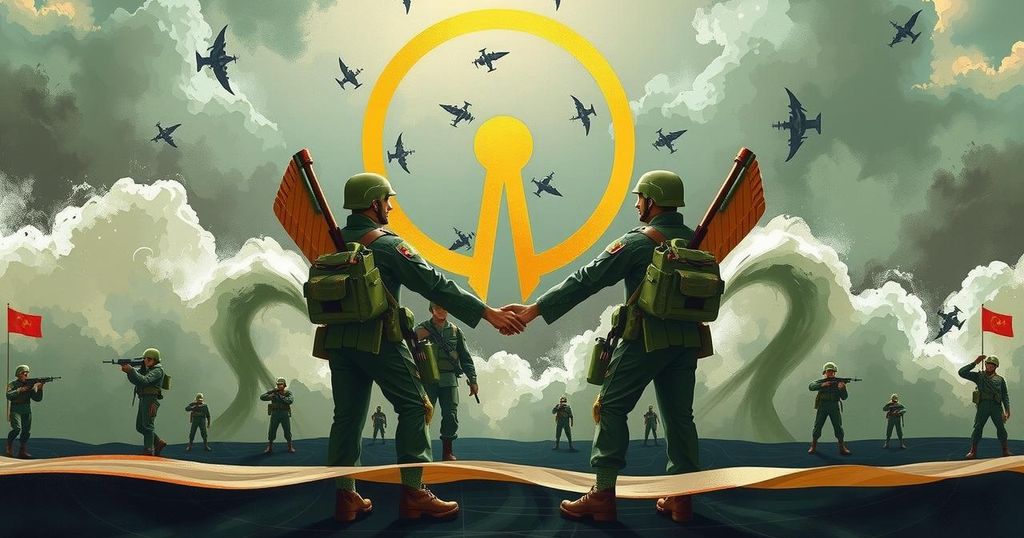Russia and Uzbekistan have established a military strategic partnership program lasting until 2030, including 50 joint military activities planned for 2025. The agreement, formalized by Russian Defense Minister Andrei Belousov, signifies deepening ties despite Uzbekistan’s non-support of Russia’s actions in Ukraine. Both nations have a history of defense cooperation, but Uzbekistan remains outside major Russian-led alliances.
Russia and Uzbekistan have implemented a military strategic partnership program, which extends until 2030, as announced by Russia’s Defense Ministry. This initiative aims to intensify military cooperation in light of Russia’s increasing isolation from Western nations. The program includes 50 unspecified joint military operations planned for 2025, with additional strategic actions scheduled from 2026 to 2030.
During his visit to Tashkent, Russian Defense Minister Andrei Belousov formalized this agreement. While maintaining strong ties with Russia, Uzbekistan has not endorsed Russia’s military operations in Ukraine. Additionally, the Uzbek government has cautioned its citizens against potential legal repercussions for engaging in mercenary roles within the conflict.
Uzbekistan remains economically aligned with Russia but has opted out of joining Moscow-led entities such as the Eurasian Economic Union (EAEU) and the Collective Security Treaty Organization (CSTO). In 2017, both nations entered a defense cooperation treaty, covering arms supplies, maintenance, military assistance, and joint research development.
The newly formed military strategic partnership between Russia and Uzbekistan marks a significant step toward strengthening bilateral military relations, notwithstanding Uzbekistan’s cautious stance regarding Russia’s foreign military engagements. As both nations embark on joint military activities and broader strategic plans leading up to 2030, the dynamics of regional security will likely evolve, influenced by Uzbekistan’s independent policy decisions in the face of Russia’s geopolitical challenges.
Original Source: www.themoscowtimes.com






